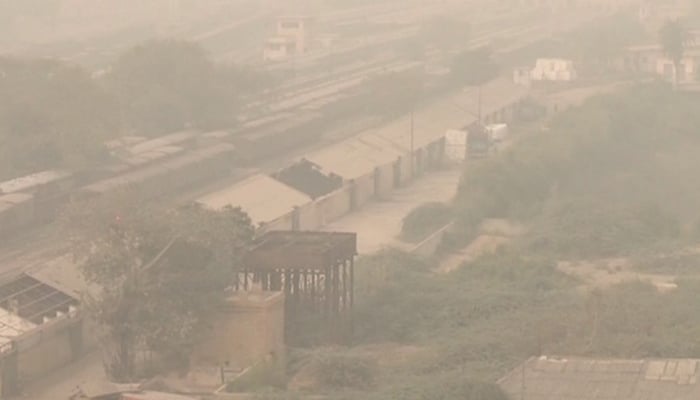Indian weather expert says air pollution rising in coastal cities, including Karachi, Kolkata, Dhaka
Palawat says coastal cities are directly and indirectly affected by Western disturbances, which have increased in frequency
December 10, 2020

KARACHI: A top weather expert has warned of rising air pollution in coastal cities, such as Karachi in Pakistan, Kolkata in India, and Dhaka in Bangladesh, during winters as high-rise buildings in these metropolises break down westerly winds and humidity combined with particulate matter causes haze and fog.
Mahesh Palawat, the vice-president of Skymet Weather Services, a private Indian company providing meteorology and climate change news and forecasts, observed that the amount of particulate matter in the atmospheres exceeds the amount set by the World Health Organization (WHO) during the November-January period.
In this period, Karachi ranks among the most polluted cities in the world, he said. High-speed sea breezes in the port city help keep the weather moderate and disperse the particulate matter in the atmosphere, he noted, but said these winds moved outward from the land to the sea and slowed down in their intensity in winters.
Palawat said coastal cities, including Karachi, Kolkata, and Dhaka, are directly and indirectly affected by the Western disturbances, which have increased in frequency.
Therefore, moderate dry and cold northwesterly winds are not able to set in for longer duration, which would have dispersed the pollution.
Whenever a fresh Western disturbance approaches north Pakistan and adjoining parts of Jammu and Kashmir, winds die down and moisture increases, leading to the formation of mist, haze, and shallow rainfall during the morning hours.
All three cities are densely populated and, while the nature's way of getting rid of pollution is through rains and long-lasting strong winds, the cities receive neither of the two.
On top of that, local pollutants, smoke and dust particles, and harmful gases — combined with the coastal humidity and water vapors — end up causing haze and fog in these cities, making the environment worse during winter.
Due to high-rise buildings and skyscrapers, as well as an absence of moderate-to-strong winds, particulate matter does not disperse and remains suspended in the lower atmosphere near the Earth's surface for longer duration, bumping up the pollution levels.











